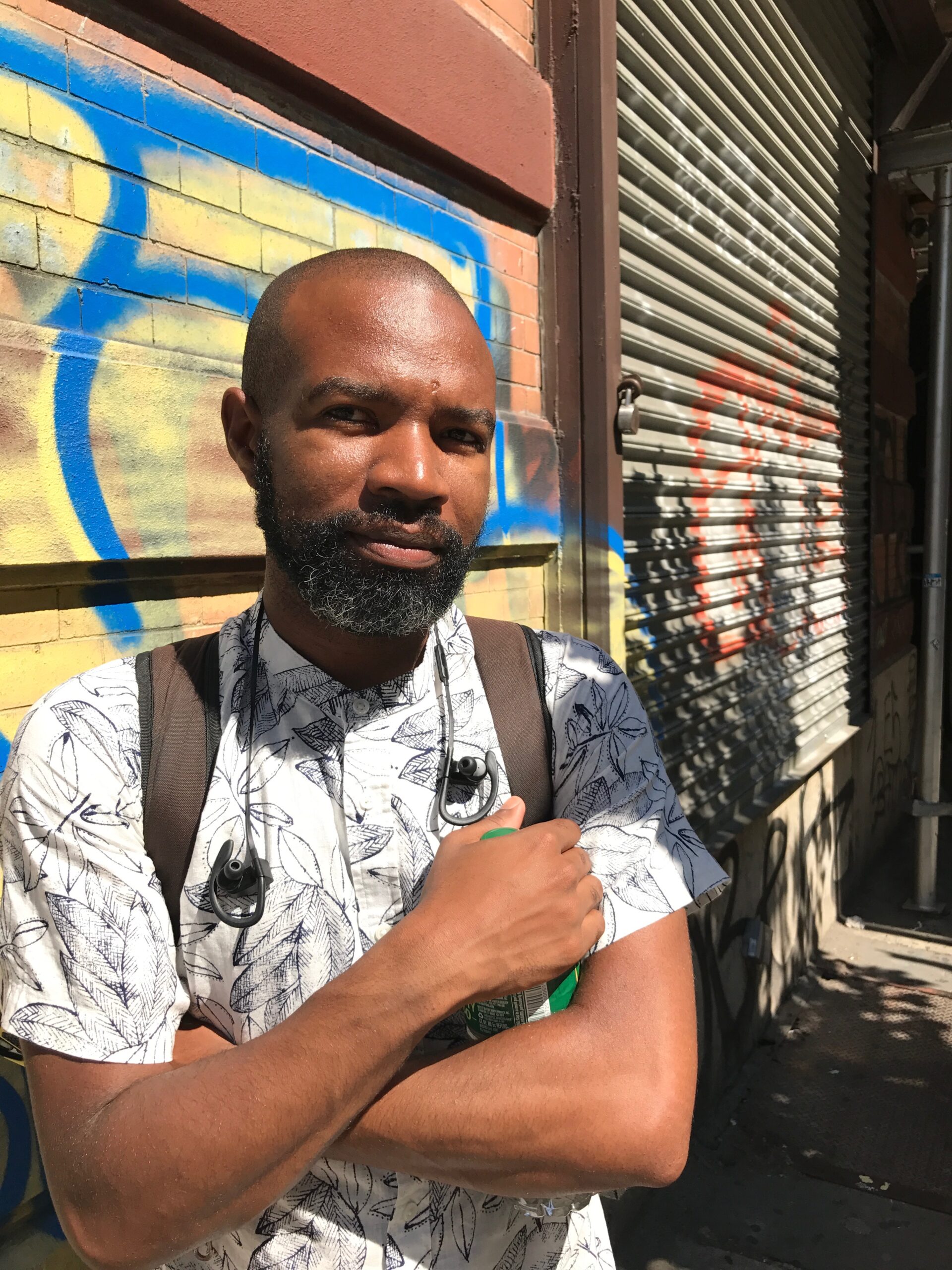Description
In June of 2023, Black Lawrence Press welcomed numerous existing and forthcoming Nomadic Press titles to our catalogue. Shifters was originally published by Nomadic.
Part memorial, part snapshot, part fancy, Shifters is a testament to the self and the act of seeing. A meditation on Blackness and queerness under duress, Shifters reacts to the power of the moment and finds joy in the power of the actor and the witness.
Praise
every revelation (for the reader) seems powerful by the moment, “earned” as they say—this is no mere stylist, but someone who can turn the camera to the violent, sensual and passionate by turns. There’s a great deal of formal constraint, elegance and mastery, and shout-outs to predecessors to whom he has apprenticed, only there to advertise the bounds he, himself, has broken. Counter to the tyranny of the social media Blitzkreig, James’s poems are filled with acts of attention that, in a way, are what I am most envious of—he’s taken the ephemeral, intense, and perhaps better-left-forgotten, moments of anxiety, love, eroticism, the strictures of the family, the wilds of momentary encounters when aesthetics and lust mix (“You’d have made me do anything with /your Sal Mineo-James Deanwattage”), the bumping up of the individual with the city, largely Los Angeles, itself (“Beyond our fly-spattered / windshield soft-lit brides and grooms / wave along the i-95”) and let them find their way into his poetry. But for all of his focus on the body and desire, situation and society, language thrives: “At MacArthur Park, kobicha and svelte, / Derek walked in and out the frame / befitting the stomach’s swell./ He omm’d himself silly in the echo / of the underpass ever after.” Regardless of where James is “going” with his poetry—I think it will be far, this is an awesome first step—read this modest set and relearn to live.
– Brian Kim Stefans, author of “Viva Miscegenation”: New Writing and many other books
“There’s something deeply celebratory about Shifters, as the poems follow the shape of the moon or the turn of the mind as it weaves in and out of a world of traffic. Randy James takes us through all the permutations of love between men: familial, devotional, romantic, eternal. ‘Some men love each other by the angle of mirror reflection,’ he writes, ‘other men in other ways.’ These poems vogue freely, love deeply, dream endlessly. They are small pleasures of seeing; the eye as it caresses, tenderly, the visible world.”
– D A Powell, author of Useless Landscape, or a Guide for Boys: Poems and Tea, Lunch, and Cocktails
Randy James brings nerve and nuance to a handbook of poetic forms: abecedarian, bop, ghazal, ode, ekphrastic and concrete poems—writes of passage for a tough and tender son, brother, lover on a journey to happily-ever-after with stops in Clubland on the way to a Vegas wedding chapel. “Where shall I take my Bride?/ I will take him where metalwork points all directions.”
– Harryette Mullen, author of Urban Tumbleweed: Notes from a Tanka Diary
“I am invisible,” the poet tells us of his childhood. “I am thought an afterthought.” But that was then; these poems are Now. In Shifters, Randy James explodes into visible power, an explorer of form, a magician of image. These are poems of Black queer manifestation, of maturing, of naming. James’s lyrics are packed with action and object: road trips and voguing, fireworks and an eighth of mushrooms, blood and spit. Desire is fuel, language is combustion, and James blazes across these moonlit pages like a charioteer. He puts form to feeling and makes you see what you didn’t know was right there all along.
– K. M. Soehnlein, author of The World of Normal Boys and You Can Say You Knew Me When
Don’t be fooled by the size of this “little” book of poems by Randy James. They are enormous in scope and as packed with the pleasures of language—and why else read poetry?—as much more published writers. If this is the beginning of his career I’d say he’s been remarkably circumspect about publishing. Here he explores deftly compressed poems addressing race, gender, eroticism, origin myth, and attachment. Poems trace the poet’s complicated selves in remarkably nimble language packed with surprising implication. There is “a sky of blasted chrysanthemums,” a person with “a trampoline smile,” someone whose “flip flops land like medicine balls,” and he notes “constellated fireflies fail in Morse code.” Yet like every lyric poet worth the name, he writes eloquently on death, including “Le petit mort” where “you ferry the self, / make the body/ un caisson for release.” In “Deliriant,” the angel’s “milli-feathers beat the air/ shooing what’s alive/from the center of my eyes” although the erotic charge is never far from death—he writes of “my right hand lipping/Azrael’s flowers–the devil’s trumpet.” More than living up to the book’s title, Shifters, the brilliant movement of subject and language make you want to hear a lot more from this poet—and SOON.
– Karen Kevorkian, author of Quivira, Lizard Dream, and White Stucco Black Wing


 © Hayat Hyatt
© Hayat Hyatt 

